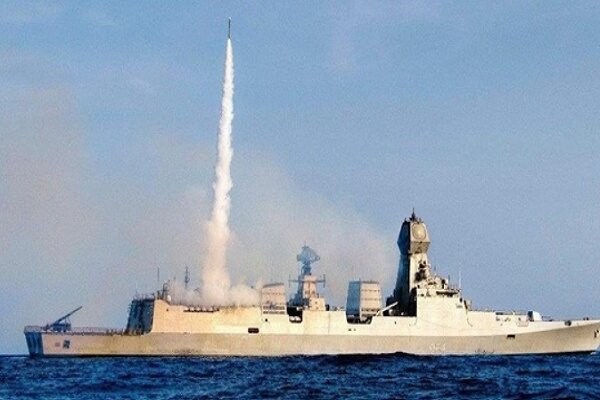India Strengthens Naval Power: Acquires Advanced Anti-Ship Cruise Missiles from Russia
The recent contract signed between the Indian Ministry of Defense and Russia marks a significant advancement in the procurement of Anti-Ship Cruise Missiles, which is set to enhance the operational capabilities of the Indian Navy’s submarine fleet. This strategic move underscores India’s commitment to bolstering its defense capabilities in the face of evolving maritime threats.
During the signing ceremony held in New Delhi, Defense Secretary Shri Rajesh Kumar Singh emphasized the importance of these missiles, stating that they will play a vital role in strengthening maritime security. However, details regarding the specific family of missiles, their quantity, and the projected delivery timelines remain undisclosed, as reported by TASS.
According to the Guarding India defense news portal, the Anti-Ship Cruise Missiles are specifically designed to be integrated with Kilo-class (Sindhughosh-class) diesel-electric submarines, which are currently in service with the Indian Navy. This integration will significantly enhance the Navy’s strike capabilities in the Indian Ocean region.
- Enhanced Combat Capabilities: The procurement is expected to significantly boost the combat potential of the Indian Navy’s submarine fleet.
- Strategic Partnership: This contract highlights the ongoing defense cooperation between India and Russia.
- Submarine Integration: The missiles are compatible with existing Kilo-class submarines, allowing for immediate operational deployment.
The decision to acquire these missiles aligns with India’s broader strategy to modernize its defense arsenal and ensure preparedness against potential threats in the maritime domain. The Indian Navy has been actively upgrading its capabilities to maintain a strategic advantage in the region, particularly given the increasing naval activities by neighboring countries.
Furthermore, the acquisition of Anti-Ship Cruise Missiles is a crucial step towards enhancing the deterrence posture of the Indian Navy. As maritime tensions continue to evolve, having advanced missile systems at the disposal of the submarine fleet can provide a significant tactical advantage.
In recent years, India has made considerable investments in its defense sector, focusing on indigenization and collaboration with foreign partners to enhance its military capabilities. This contract with Russia is a continuation of that trend, reinforcing the long-standing defense ties between the two nations.
As the Indian Navy prepares to integrate these new capabilities, it is crucial for military planners to consider the implications for regional security dynamics. The introduction of advanced missile systems could lead to an arms race in the region, prompting neighboring countries to reassess their own military strategies.
In conclusion, the procurement of Anti-Ship Cruise Missiles from Russia represents a significant milestone for the Indian Navy and the country’s defense strategy as a whole. This development not only aims to bolster maritime security but also reflects India’s commitment to maintaining a robust defense posture in a rapidly changing geopolitical environment.
As the details of the contract unfold, defense analysts and military experts will be closely monitoring the integration process and the potential impacts on regional stability. The successful deployment of these missiles could redefine naval warfare in the Indian Ocean, positioning India as a formidable maritime power.
In summary, the Indian Ministry of Defense’s contract with Russia for Anti-Ship Cruise Missiles is a pivotal moment for the Indian Navy, enhancing its capabilities and reinforcing its strategic position in the region.






